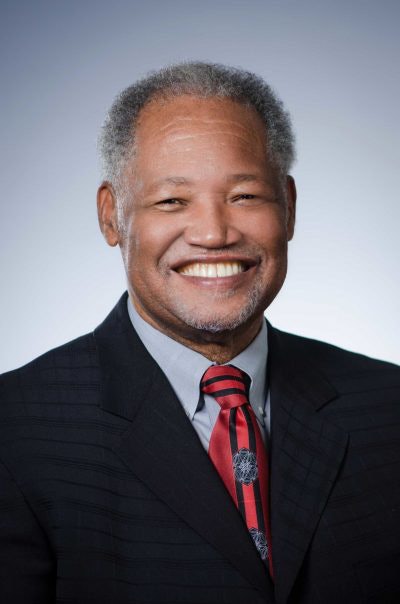When I saw Dr. Martin Luther King, Jr. on television as a middle school student in the 1960s, I did not fully grasp the magnitude of his words, but I could not tear my eyes away from the screen. Here was a powerful person who looked like me, and stood before thousands of people who marched with him on Washington, D.C. for civil rights. Looking back on that experience, I know it propelled me forward on a journey toward my own success.
I say this because the pandemic has caused more than illness and death. It is creating a dynamic that could have long-term consequences for the Black community.
 Dr. Henry Shannon
Dr. Henry ShannonCommunity colleges throughout the U.S. have experienced dramatic decreases in enrollment among students of color since the pandemic began. According to the National Student Clearinghouse Research Center, fall enrollment among community college undergraduate students overall declined by nearly 19 percent. Community colleges reported a 19 percent decrease in enrollment among Black men and a 16 percent decrease for Latino men.
This adds insult to injury, because we were already struggling to keep Black students in college. A 2019 report from our Chancellor’s office found that 63 percent of Black community college students do not earn a degree or certificate, or transfer to a four-year college or university within six years.
We all recognize the challenging circumstances that college students are currently facing. Many students who have lost their jobs due to COVID-19 have decided to put their academic goals on the back burner. Some of our students are experiencing homelessness and struggling simply to put food on the table, let alone pay for tuition.
We remain committed to making sure our students have a better future, our industry partners have a steady flow of skilled workers and our economy thrives.
But we also need to keep our eyes on the future. An achievement gap means fewer Black students will step into better jobs. The generation that follows them will see fewer Black teachers in the classroom, fewer Black doctors healing their illnesses and fewer leaders like Dr. King working to change the world for the better. It’s a problem that could affect multiple generations.
And let me be clear – the issue here is not the Black students. There is no lack of desire among the Black community to pursue higher education. It is up to us, as educators, to listen to our students and learn from them what support and resources are needed for them to stay enrolled.
A 2018 Johns Hopkins University study showed that Black students who had had just one Black teacher by the third grade were 13 percent more likely to enroll in college. Students with two or more were 32 percent more likely.
While more and more college students are enrolling in Science, Technology, Engineering and Mathematics (STEM) programs, representation gaps also persist. And as a result, fewer Blacks are represented in the workforce in areas like healthcare, research, computer science and more. This contributes to a lack of innovation and understanding that can have devastating results.
A peer-reviewed study in the Proceedings of the National Academy of Sciences showed that Black babies die three times more often in the U.S. than White babies during initial hospital stays. But their mortality rate is reduced by half when they are cared for by Black doctors.
We have seen in the past year the consequences of not understanding one another, particularly with the deaths of so many of our Black brothers and sisters, like George Floyd and Breonna Taylor. Former President Barack Obama’s “Task Force on 21st Century Policing” found that increasing diversity within police departments would help improve trust within communities and reduce crime.
While life as we know it has become a series of challenges and inconveniences in the wake of COVID-19, we clearly cannot wait until the pandemic is over to prepare a more diverse student body to go out into the world and serve everyone fairly and equitably. Whether you’re a parent, an educator or a community member, I urge you to do what you can to support students of color. And if you are a student of color, please know that times are tough right now, but you are not alone and colleges across the nation are ready to help you work through it – Chaffey College being one of them.
Dr. Henry Shannon is superintendent/president of Chaffey College.


















